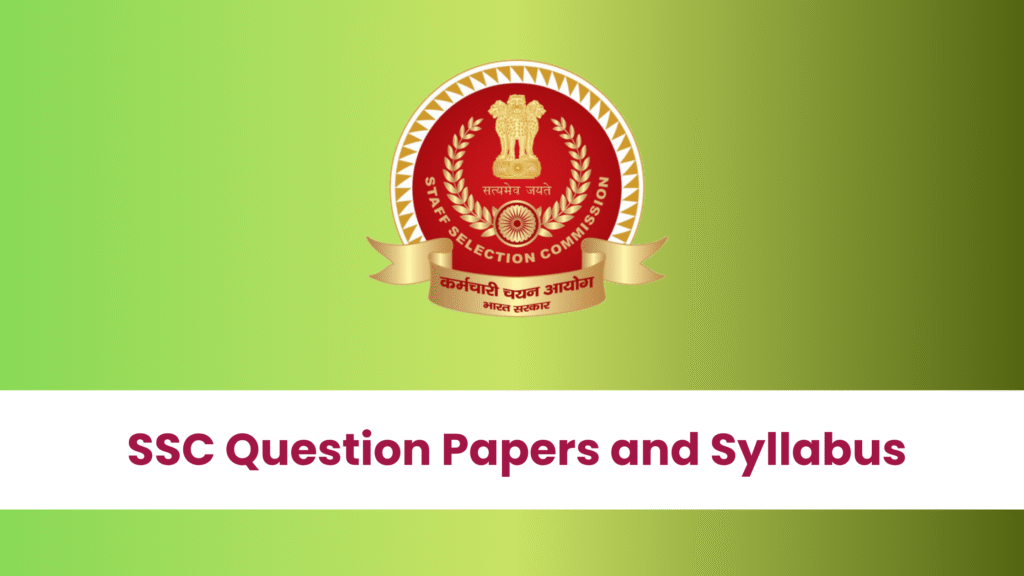Why Analyzing UPSC Question Papers Matters
The Union Public Service Commission (UPSC) is India’s premier recruiting agency responsible for selecting candidates for some of the most prestigious and strategic posts in the country. It conducts a wide range of competitive examinations to fulfill national requirements—ranging from administrative services and defense to medical and engineering sectors. UPSC exams are known for their high standards, extensive syllabus, and rigorous evaluation methods. For aspirants aiming to serve the nation through these roles, understanding the exam pattern is a crucial first step—and this begins with analyzing previous years’ question papers.
Importance of Analyzing Previous Year Papers
Studying past UPSC question papers helps students:
Understand exam structure—including types of questions, time allocation, and marking schemes
Identify recurring themes and topics from previous years
Gauge difficulty level and plan your preparation accordingly
Enhance time management skills through timed practice
Pinpoint weak areas and improve topic-wise focus
Official UPSC papers provide a reliable benchmark for self-assessment and targeted revision.
UPSC Examinations with Available Question Papers
The official UPSC website offers previous question papers for several major exams, including:
Civil Services Examination (CSE) – For recruitment to Indian Administrative Service (IAS), Indian Police Service (IPS), Indian Foreign Service (IFS), and other central civil services
Combined Defence Services (CDS) Examination – For officer entry into the Army, Navy, and Air Force
Combined Medical Services (CMS) Examination – For recruitment of medical officers in government health departments
Engineering Services Examination (ESE) – For recruitment to engineering posts in various technical services of the Government of India
Indian Forest Service (IFS) Examination – For recruitment to forestry services under the Ministry of Environment, Forest and Climate Change
Indian Economic Service (IES)/Indian Statistical Service (ISS) Examination – For specialist roles in economics and statistics under various government departments
Geologists’ Examination (now called Combined Geo-Scientist Examination) – For recruitment to geologist and hydrologist roles
Central Armed Police Forces (CAPF) Examination – For recruitment to Assistant Commandant posts in BSF, CRPF, CISF, ITBP, and SSB
Indian Railway Traffic Service (IRTS), Indian Railway Accounts Service (IRAS), and related exams – Covered under CSE or ESE, depending on the post
NDA & NA Examination (National Defence Academy & Naval Academy) – For admission to the NDA and NA for pre-commission training of officers
S.O./Steno (Grade B/Grade I) Limited Departmental Competitive Examination – For eligible government employees for promotion to section officer or stenographer posts
You can explore and download past papers from:
🔗 UPSC Previous Year Question Papers – Official Portal
Overview of Key Exams
🏛 Civil Services Examination (CSE)
Prelims: General Studies Paper I & II (CSAT)—Objective MCQs
Mains: 9 papers including Essay, GS Papers I-IV, and two optional papers—Subjective and descriptive in nature
Interview: Personality test for final selection
🛡 Combined Defence Services (CDS)
Papers on English, General Knowledge, and Elementary Mathematics
OTA candidates (Officers’ Training Academy) only appear for English and GK
Conducted twice a year; used for selection into IMA, INA, AFA, and OTA
⚕ Combined Medical Services (CMS)
Two objective-type papers focusing on medical science
Followed by an interview/personality test
Negative marking applicable
Tips for Smart Question Paper Analysis
Begin with the last 5–6 years of papers
Attempt papers under real exam conditions to simulate the test environment
Focus on question trends, frequently asked topics, and repeated concepts
Create a topic-wise revision chart based on your analysis
Use question papers to refine your answer writing, MCQ strategy, and optional subject depth

